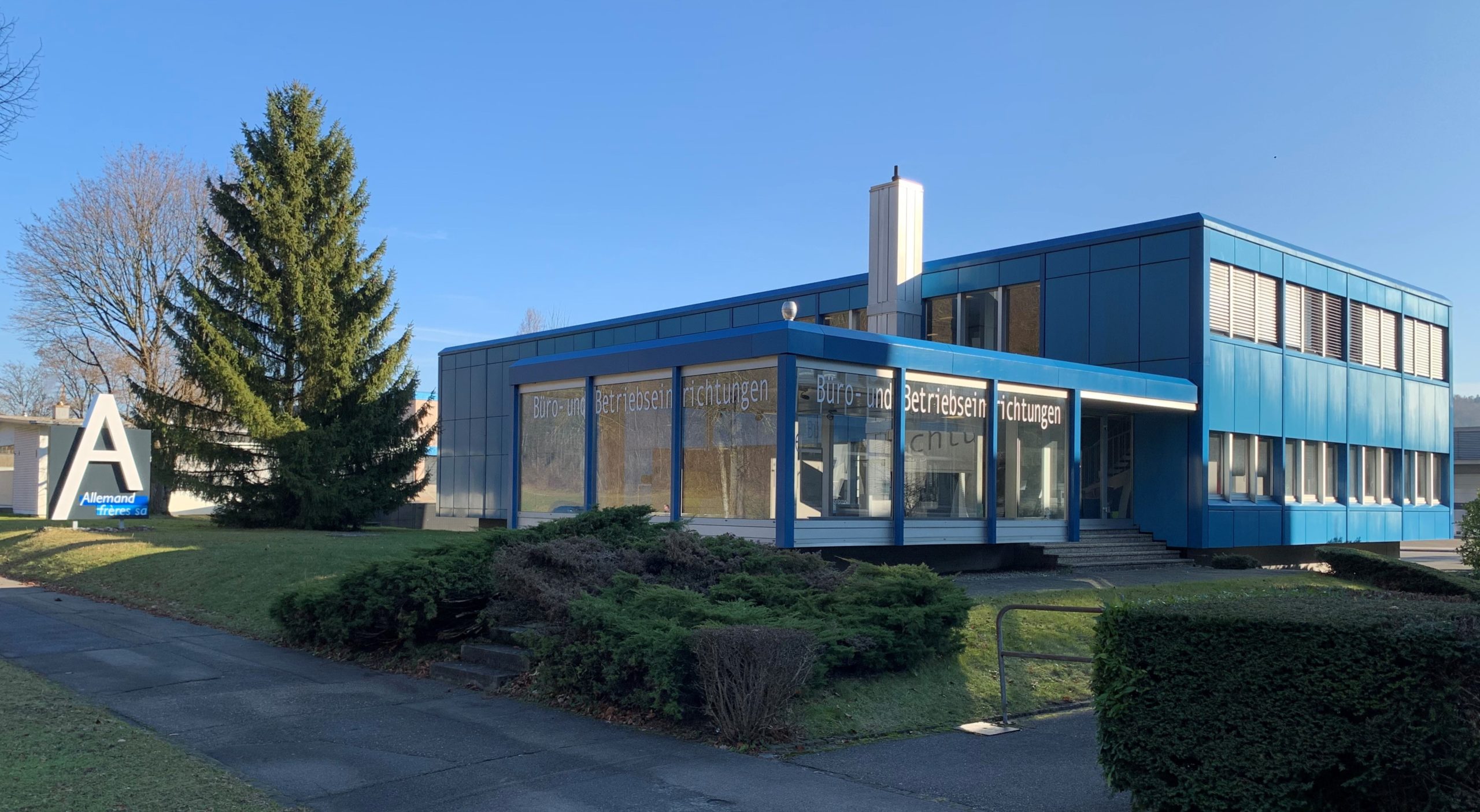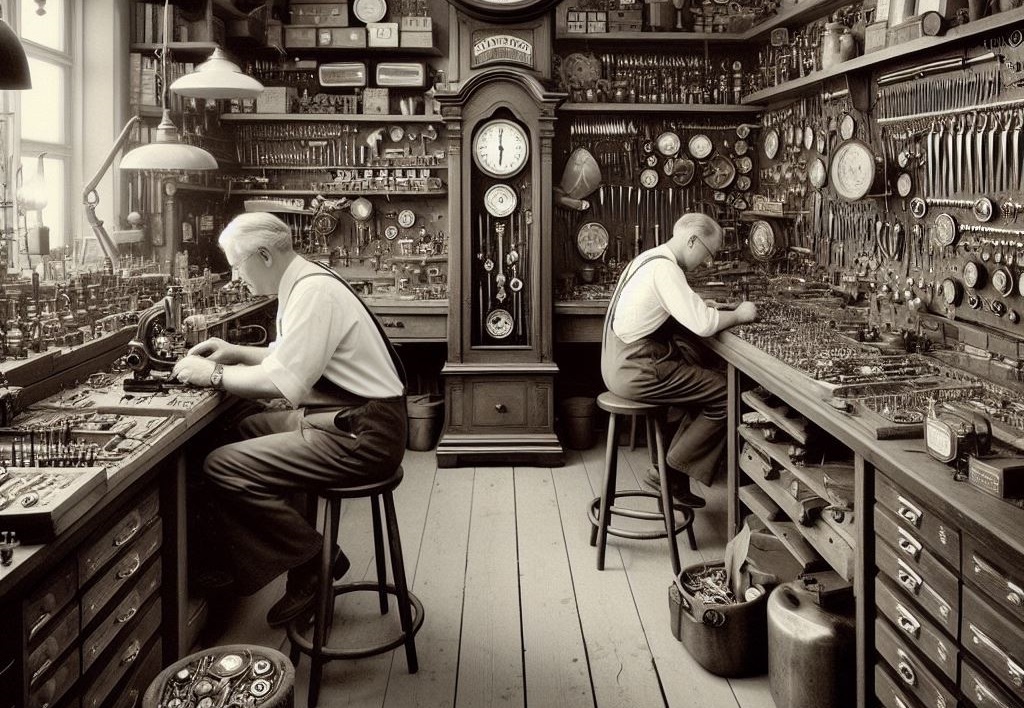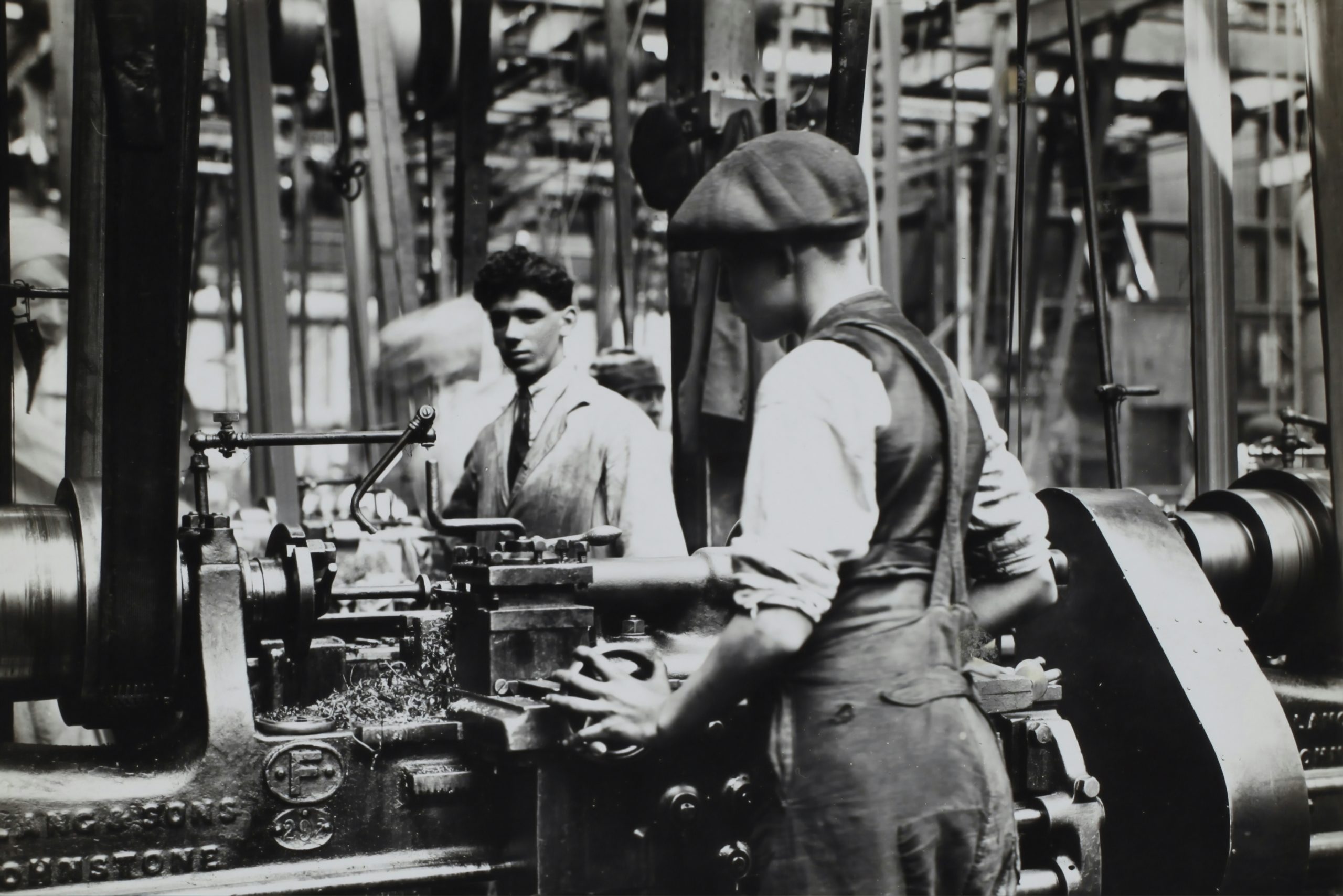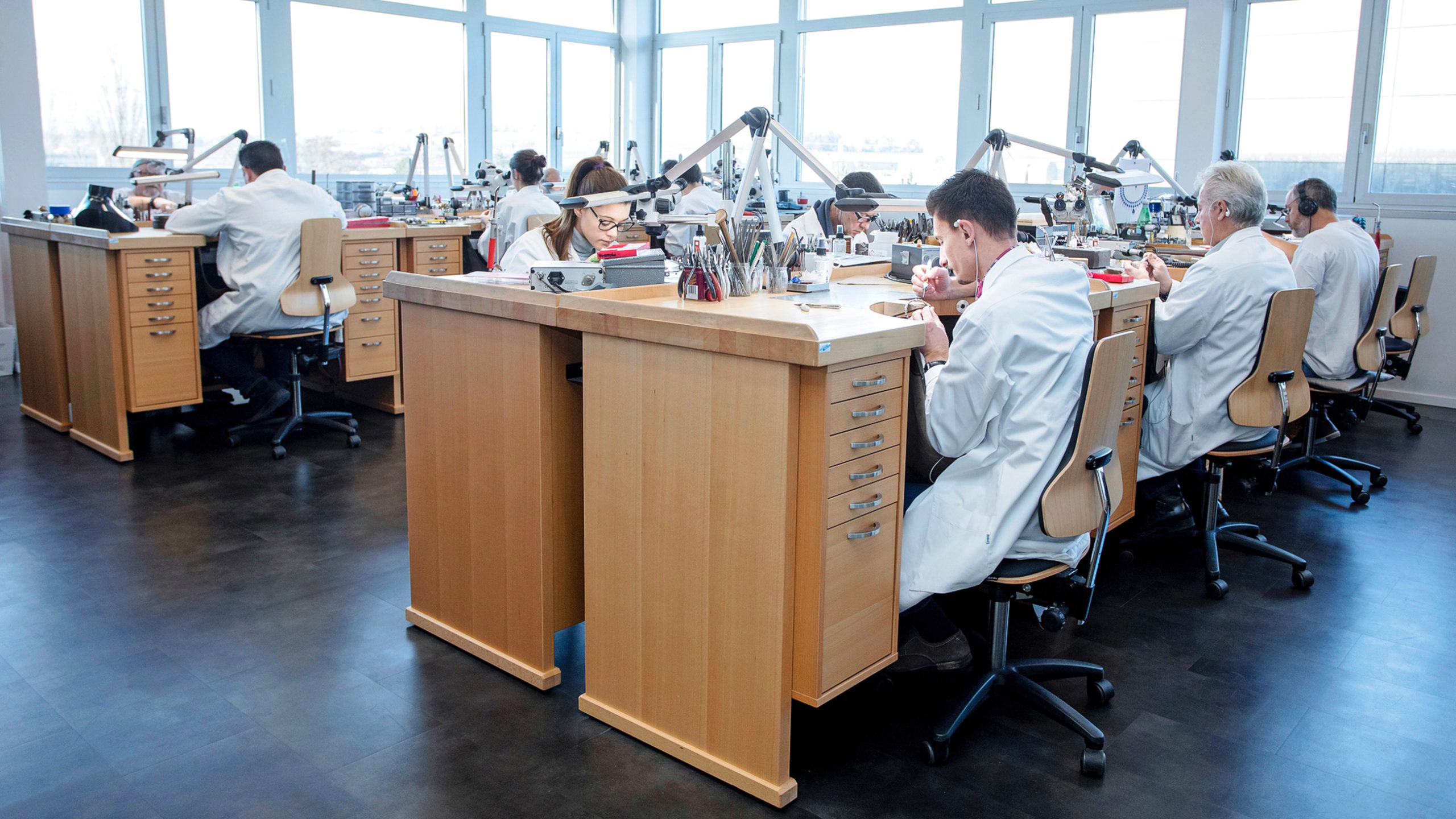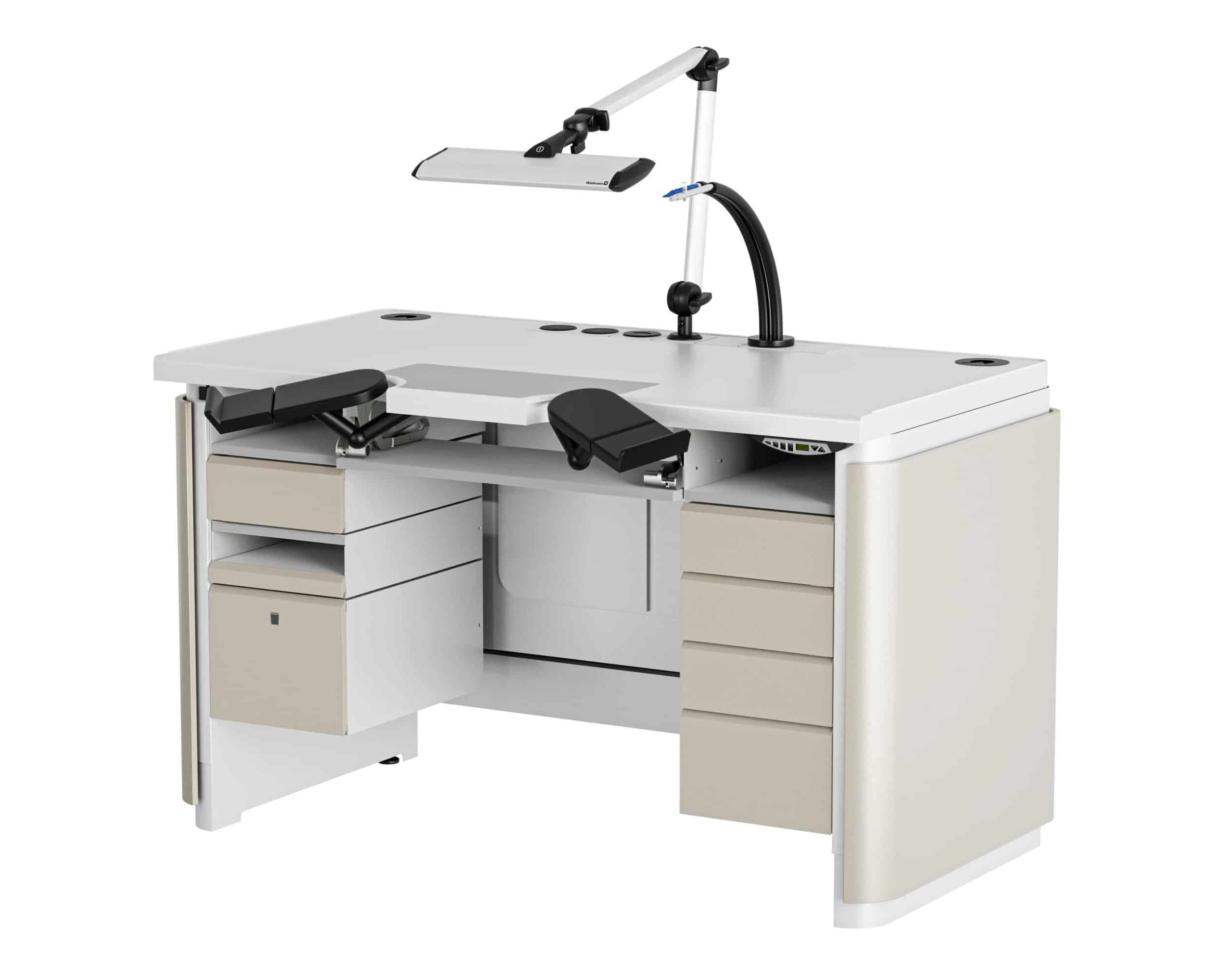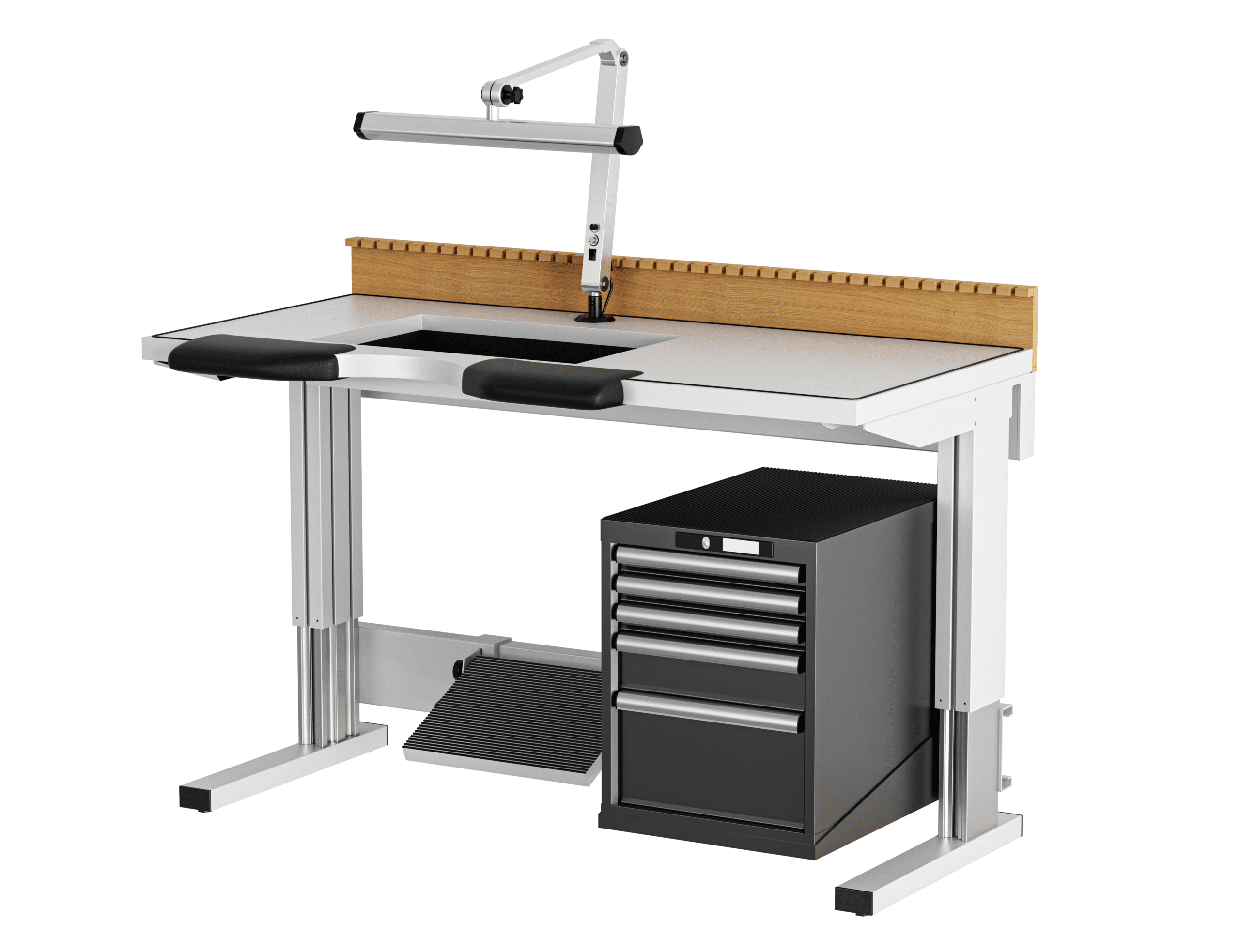Allemand Frères SA has been designing and producing watchmakers’, jewellers’ and gem-setters’ workbenches for 3 generations.
For 3 generations, Allemand Frères SA has been developing watchmakers’, jewellers’ and gem-setters’ workbenches to meet the needs of both the biggest brands and independent craftsmen. Discover the history of the Finework brand and its development in parallel with the growth of the company.
A workbench that meets a specific need
Watchmaking, jewellery-making and gem-setting are age-old, high value-added professions that require many years of training and perfecting skills in order to achieve the very high levels of quality demanded by these professions. We can distinguish two main periods in relation to these professions: the “pre-industrial revolution” period and the “post-industrial revolution” period.
In the period before the industrial revolution, watchmakers and jewellers were craftsmen who worked essentially by hand. Each craftsman developed his own working techniques and the tools needed to carry out all the operations required to make his products. In the vast majority of cases, these products were made to order and required several months to several years of work. As with the use of made-to-measure tools, craftsmen customised their workbenches so that they could respond precisely to their needs. The absence of standardised processes meant that workbenches were also made to order, by cabinet-makers and adapted by jewellers and watchmakers as their needs changed.
The complexity of making the parts, the production times required and the absence of specific needs (the majority of the population were engaged in agricultural activities with few resources, and their needs in knowing the time of day were very relative) meant that the volume of production was very limited and reserved for the elite of society.
The industrial revolution at the end of the XVIIᵉ / beginning of the XIXᵉ century brought drastic changes to the way society functioned. Changes in production techniques meant an explosion in productivity and the transition from an agrarian society to a society of large-scale production. With this came the birth of big business and the organisation of work, the legacy of which continues to this day. This new organisation of work, combined with the birth and development of the railway, created an unprecedented need: everyone in this new society needed a precise way of knowing the time, regardless of their status.
The need for precise, reliable and affordable timepieces led to a sharp increase in watchmaking activity in Switzerland, as well as the growing industrialisation of manufacturing processes in the watch industry.
Allemand Frères SA, founded in 1954, made its mark on the market very early on by developing specialised workbench solutions for the watchmaking, jewellery and gem-setting professions for industrial use. By offering modular systems, Allemand Frères has been able to combine the need for rationalisation and standardisation of processes with the traditional heritage of the watchmaking and jewellery industries.
A rebirth and changing needs
The Swiss watch industry was enjoying strong growth and good health until the arrival on the market of foreign-made quartz watches, which combined precision far surpassing that of traditional mechanical watches with an affordable price. The Swiss watchmaking industry then underwent a major crisis, with a significant reduction in activity and the disappearance of several brands. This crisis came to an end in the mid-1980s with the birth of the Swatch and the watchmaking group behind it.
The renaissance of the Swiss watchmaking industry marked a historic turning point and enabled many brands to reposition themselves in a more upmarket segment. This repositioning enabled the watchmaking industry to enjoy a boom that continues to this day.
The move upmarket associated with continued growth has also led to changes in production requirements. Processes have been adapted to respond to a lean management approach, which also implies a change in watchmaker’s workbenches. As a long-standing and privileged partner, Allemand Frères SA has helped the biggest brands to develop their workbenches in line with their evolving needs.
Innovation at the heart of our developments
The main developments in workbenches over the years have been ergonomic innovations. The legs went from a fixed height to one that could be adjusted manually using tools, and then to one that could be adjusted electrically using a control box. This allows precise adjustment of the working height, and in the case of the electrically adjustable system, adjustment that can be modified according to the tasks to be carried out or when the workbench is used by several people.
Another important element from an ergonomic point of view is the use of armrests. Originally, these were fixed and made of solid wood, provided the workbench had them. They could not be adjusted and offered little advantage over a workbench without armrests. These armrests gradually evolved, initially with upholstery, and later with a system allowing them to be adjusted.
The new needs of our customers have led us to develop a number of accessories, such as a system of armrests on rails that can be adjusted in width and removed, a system of modular cubes for attaching different accessories to the tray and changing their position without tools, and a system of modular layettes.
We have also carried out numerous special developments to optimally integrate the various tools used (sequential assembly station, integrated binoculars, semi-automated work systems, etc.) according to the specific requirements of our customers.
Ergonomics as a growth driver
Ergonomics plays a central role in the choice of professional furniture. By developing workbenches focused on ergonomics, Allemand Frères SA helps watchmakers, jewellers and gem setters to carry out their tasks in the best possible way.
By choosing a Finework ergonomic workbench by Allemand Frères SA, you can maximise user performance in the short term while limiting the risks of musculoskeletal disorders in the long term.
Work with Allemand Frères to develop your future workbench!
Get in touch with our specialists right away to define your needs and develop your ideal professional workbench. Our teams will help you analyse your needs, suggest innovative solutions and send you a 3D model of your future workbench.

